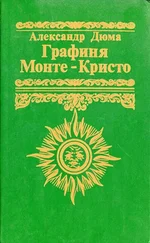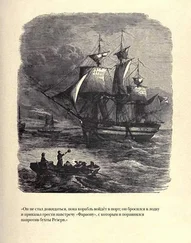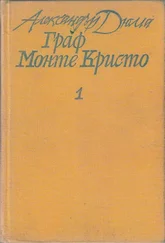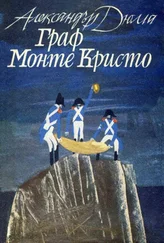| The body forgets sometimes-but the mind never forgets." |
Телесное зрение иногда забывает, но духовное помнит всегда. |
| "And how far back into the past do your recollections extend?" |
- А с какого времени вы себя помните? |
| "I could scarcely walk when my mother, who was called Vasiliki, which means royal," said the young girl, tossing her head proudly, "took me by the hand, and after putting in our purse all the money we possessed, we went out, both covered with veils, to solicit alms for the prisoners, saying, |
- Я едва умела ходить; моя мать Василики - имя Василики означает царственная, - прибавила девушка, подымая голову, - моя мать брала меня за руку, и мы обе, закутанные в покрывала, положив в кошелек все золотые монеты, какие у нас были, шли просить милостыню для заключенных; мы говорили: |
| 'He who giveth to the poor lendeth to the Lord.' Then when our purse was full we returned to the palace, and without saying a word to my father, we sent it to the convent, where it was divided amongst the prisoners." |
"Благотворящий бедному дает взаймы Господу... "[59] Когда кошелек наполнялся доверху, мы возвращались во дворец, не говоря отцу, все эти деньги, которые нам подавали, принимая нас за бедных, отсылали монастырскому игумену, а он распределял их между заключенными. |
| "And how old were you at that time?" |
- А сколько вам было тогда лет? |
| "I was three years old," said Haidee. |
- Три года, - сказала Гайде. |
| "Then you remember everything that went on about you from the time when you were three years old?" said Albert. |
- И вы помните все, что делалось вокруг вас, начиная с трехлетнего возраста? |
| "Everything." |
- Все. |
| "Count," said Albert, in a low tone to Monte Cristo, "do allow the signora to tell me something of her history. |
- Граф, - сказал шепотом Альбер, - разрешите синьоре рассказать нам что-нибудь из своей жизни. |
| You prohibited my mentioning my father's name to her, but perhaps she will allude to him of her own accord in the course of the recital, and you have no idea how delighted I should be to hear our name pronounced by such beautiful lips." |
Вы запретили мне говорить с ней о моем отце, но, может быть, она сама что-нибудь о нем расскажет, а вы не можете себе представить, как мне было бы приятно услышать его имя из таких прекрасных уст. |
| Monte Cristo turned to Haidee, and with an expression of countenance which commanded her to pay the most implicit attention to his words, he said in Greek,-"Tell us the fate of your father; but neither the name of the traitor nor the treason." |
Монте-Кристо обернулся к Г айде и, подняв бровь, чтобы обратить ее особое внимание на то, что он ей скажет, произнес по-гречески: - Patroz athn, mh onoma prodotou cai prodosian, eip'hmtn.[60] |
| Haidee sighed deeply, and a shade of sadness clouded her beautiful brow. |
Гайде тяжело вздохнула, и темное облако легло на ее ясное чело. |
| "What are you saying to her?" said Morcerf in an undertone. |
- Что вы ей сказали? - шепотом спросил Морсер. |
| "I again reminded her that you were a friend, and that she need not conceal anything from you." |
- Я снова предупредил ее, что вы наш друг и что ей незачем таиться от вас. |
| "Then," said Albert, "this pious pilgrimage in behalf of the prisoners was your first remembrance; what is the next?" |
- Итак, - сказал Альбер, - ваше первое воспоминание - о том, как вы собирали милостыню для заключенных; какое же следующее? |
| "Oh, then I remember as if it were but yesterday sitting under the shade of some sycamore-trees, on the borders of a lake, in the waters of which the trembling foliage was reflected as in a mirror. |
- Следующее? Я вижу себя под сенью сикомор, на берегу озера; его дрожащее зеркало я как сейчас различаю сквозь листву. |
| Under the oldest and thickest of these trees, reclining on cushions, sat my father; my mother was at his feet, and I, childlike, amused myself by playing with his long white beard which descended to his girdle, or with the diamond-hilt of the scimitar attached to his girdle. |
Прислонившись к самому старому и ветвистому дереву, сидит на подушках мой отец; моя мать лежит у его ног, а я, маленькая, играю белой бородой, спадающей ему на грудь, и заткнутым за пояс кинжалом, рукоять которого осыпана алмазами. |
| Then from time to time there came to him an Albanian who said something to which I paid no attention, but which he always answered in the same tone of voice, either |
Время от времени к нему подходит албанец и говорит ему несколько слов; я не обращаю на них никакого внимания, а отец отвечает, никогда не меняя голоса: |
| 'Kill,' or |
"Убейте его" или |
| ' Pardon.'" |
"Я его прощаю". |
| "It is very strange," said Albert, "to hear such words proceed from the mouth of any one but an actress on the stage, and one needs constantly to be saying to one's self, 'This is no fiction, it is all reality,' in order to believe it. |
- Как странно, - сказал Альбер, - слышать такие вещи из уст молодой девушки не на подмостках театра и говорить себе: это не вымысел. |
| And how does France appear in your eyes, accustomed as they have been to gaze on such enchanted scenes?" |
Но как же вам после такого поэтического прошлого, после таких волшебных далей нравится Франция? |
| "I think it is a fine country," said Haidee, "but I see France as it really is, because I look on it with the eyes of a woman; whereas my own country, which I can only judge of from the impression produced on my childish mind, always seems enveloped in a vague atmosphere, which is luminous or otherwise, according as my remembrances of it are sad or joyous." |
- Я нахожу, что это прекрасная страна, - сказала Гайде, - но я вижу Францию такой, как она есть, потому что смотрю на нее глазами взрослой женщины; а моя родина, на которую я глядела глазами ребенка, кажется мне всегда окутанной то лучезарным, то мрачным облаком в зависимости от того, видят ли ее мои глаза милой родиной или местом горьких страданий. |
| "So young," said Albert, forgetting at the moment the Count's command that he should ask no questions of the slave herself, "is it possible that you can have known what suffering is except by name?" |
- Вы так молоды, синьора, - сказал Альбер, невольно отдавая дань пошлости, - когда же вы успели страдать? |
| Haidee turned her eyes towards Monte Cristo, who, making at the same time some imperceptible sign, murmured,-"Go on." |
Г айде обратила свой взор на Монте-Кристо, который, подавая ей неуловимый знак, шепнул: -Eipe.[61] |
| "Nothing is ever so firmly impressed on the mind as the memory of our early childhood, and with the exception of the two scenes I have just described to you, all my earliest reminiscences are fraught with deepest sadness." |
- Ничто не накладывает такой отпечаток на душу, как первые воспоминания, а кроме тех двух, о которых я вам сейчас рассказала, все остальные воспоминания моей юности полны печали. |
| "Speak, speak, signora," said Albert, "I am listening with the most intense delight and interest to all you say." |
- Говорите, говорите, синьора! - сказал Альбер. -Поверьте, для меня невыразимое счастье слушать вас. |
| Haidee answered his remark with a melancholy smile. |
Гайде печально улыбнулась. |

![Агата Кристи - На краю [английский и русский параллельные тексты]](/books/32247/agata-kristi-na-krayu-anglijskij-i-russkij-paralle-thumb.webp)
![Агата Кристи - Объявлено убийство [английский и русский параллельные тексты]](/books/33247/agata-kristi-obyavleno-ubijstvo-anglijskij-i-russ-thumb.webp)




![Александр Дюма - Граф Монте-Кристо [сборник litres]](/books/431076/aleksandr-dyuma-graf-monte-kristo-sbornik-litres-thumb.webp)